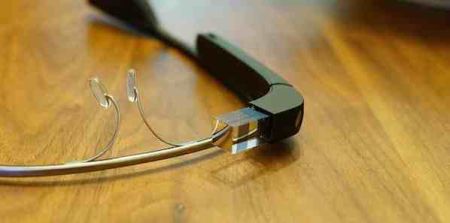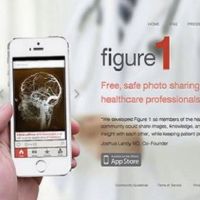A recent article in The Atlantic looks at privacy concerns surrounding Google Glass. The device, introduced to the UK and U.S. markets in May 2014, has stirred up enthusiasm in the healthcare field for its potential applications that can enhance clinical efficiency and doctor-patient interaction.
The device is packed with features that respond to voice commands and even head movements, making it useful for a doctor whose hands are occupied during surgery, for example. Like the smartphone, Glass allows the user to take a picture or record a video even without someone's knowledge or consent. Ironically, this very sophistication has elicited growing concern over privacy issues.
Medical practitioners testing Glass are wary of possible violations of the Health Insurance Portability and Accountability Act (HIPAA), the privacy protocol for medicine. “It’s Google, which wants everything publicly available, and healthcare, which wants nothing publicly available,” said Alexandra Pelletier, manager of the FastTrack Innovation in Technology Programme at Boston Children’s Hospital.
With Glass, a physician could see your last blood pressure (BP) reading without having to turn away from you. A data visualisation feature also allows the monitoring of BP fluctuations. Voice-to-text processing could eliminate the need to scribble down notes.
Google is working towards making Glass a consumer device, according to Glass spokesperson Chris Dale. The company is not keen on developing industry-specific software, and prefers to have developers work with existing hardware to address niche issues such as hospital privacy.
A number of tech startups have risen to the occasion. For example, the startup Augmedix has developed software that lets clinicians use Glass to input and obtain patient data to and from the electronic health record (EHR). The startup recently clinched a deal with Dignity Health, which manages hospitals scattered in 17 U.S. states.
Another company, Pristine, sells two products for use with Glass: Checklists, a voice-controlled checklist app; and Eyesight, a video-based communication platform for telemedicine. These products, Pristine said, are HIPAA compliant - such that all Google services have been removed, practically wiping Glass' software connection to Google.
According to some physicians, patients are receptive to the gadget provided that its use is explained and their consent is obtained ahead of time. Their advice is to not wear Glass when initially meeting the patient.
Arshya Vahabzadeh, a child psychiatrist at Massachusetts General Hospital, is also enthusiastic about Glass. However, he cited the importance of having strict usage rules in a hospital setting. “Some people don’t necessarily want to let it be known that they’re in our waiting room.”
Source: The Atlantic
Image source: Wikimedia Commons
Latest Articles
Privacy, Google Glass
A recent article in The Atlantic looks at privacy concerns surrounding Google Glass. The device, introduced to the UK and U.S. markets in May 2014, has sti...



























